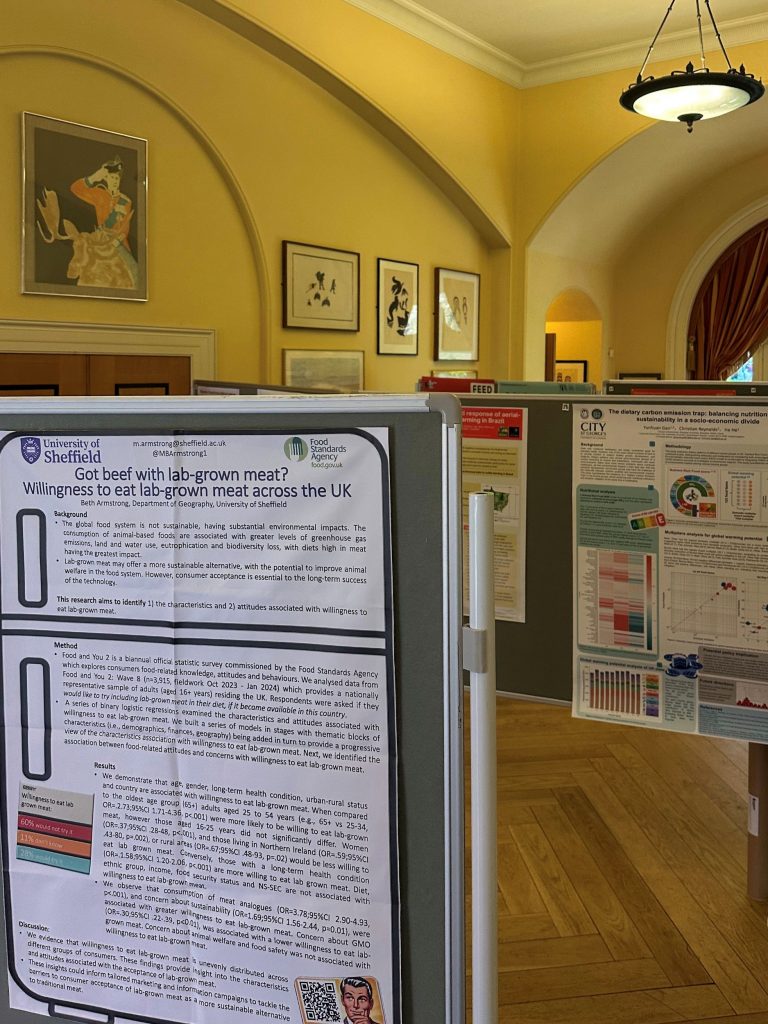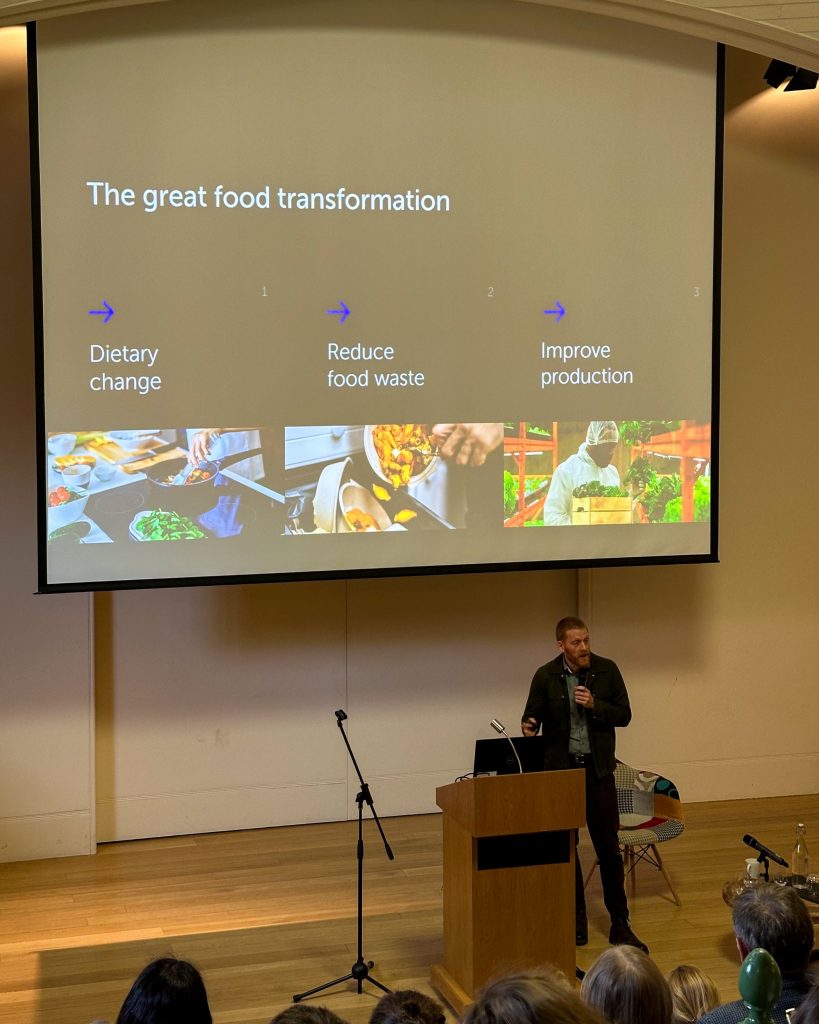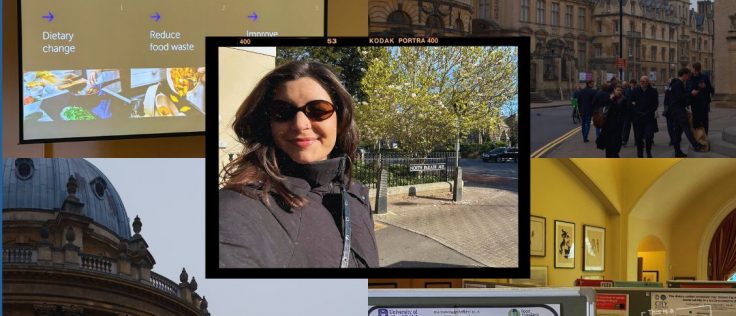Written by Ruby Hennessy-Grant
“Where are you from?”
“Australia.”
“No, I mean’t, what University are you from?”
This is how my first conversation went earlier this week when attending Oxford Martin Programme’s Annual Livestock, Environment and People Conference (LEAP). Assuming someone might be asking about my country of origin rather than the academic institute was my first faux pas of the day, and certainly not my last.

I was, in fact, I was the only person at the event who hadn’t put their institute in when registering—meaning, my name tag was the only one which held just that. A name with no institution to provide context to the social hierarchy, and a lesson learned for next time.
Awkward interactions aside, the conference was an incredibly insightful look at the way academics from the Oxford Institution and beyond are discussing our food systems. The conference aim is to bring together researchers working on multiple aspects of meat and dairy production and consumption to consider its effects on population health, the economy, society, and the environment.

Where the conference showcased two plenary speakers, fifteen research presenters and thirty-six research posters which ranged in topics from economy, climate change, human health to vegan dog food diets.
One overlying message persisted above all else, that is, we have underestimated how climate change will affect our ability to feed ourselves and the systems we’ve built around livestock and agriculture are part of the problem.

Or in the words of Oxford’s own Associate Professor Dr. Paul Behrens:
“We’re going plant-based one way or another.”
Closing the day with a cautionary talk, Dr. Behrens emphases the dire nature of our current food systems and global mindset towards diets which is driving the climate crisis.
His talk, which I will link below, highlights how livestock-centric agricultural systems are the biggest drivers of biodiversity loss, land-system change, freshwater change and nutrient imbalances. While also being the second-largest factor driving climate change, ocean acidification, and atmospheric aerosol loading. Plus highlights its role in zoonotic diseases and antimicrobial resistance.

Dr. Behrens speaks of two futures for our food systems. The first, we try to keep our current systems going, with heavy focus on livestock production both in production and diets. Knowing that this system us unsustainable and accepting the consequences of attrition caused by climate breakdown. The second, we invest in a slower, more resilient plant-based transition—one that prioritises nutrition, land use, and the wellbeing of future generations.

It was certainly a content heavy day and left me considering how I might move forward in making more conscious food choices to better support the planet. How I can vote with my fork towards more a more sustainable plant-centric food system.
Dr Paul Behrens talk from the LEAP Conference 2025 has been uploaded to YouTube and encourage everyone to watch it: Click here to watch!
Charlie blog is a SSAF funded initiative.










